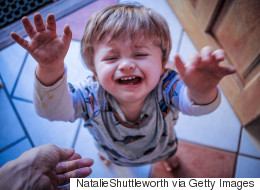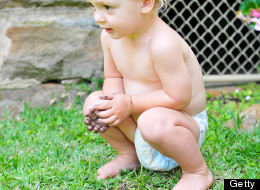 I've been reading a lot in the news (aka my Facebook feed) lately about "parenting kryptonite." Maybe you've seen some of the headlines too?
I've been reading a lot in the news (aka my Facebook feed) lately about "parenting kryptonite." Maybe you've seen some of the headlines too?
"Father discovered eating limp triangles of veggie-pizza off dining room floor. Claims hunger following aftermath of toddler refusal to eat nutritionally compliant dinner."
"Every day, it seems that we face some parenting task that turns us into our anxiety-ridden alter-egos, grasping for control."
"Mother earns extra $$ after being mistaken for a street busker while walking to her office. Admits she was unaware that she was still singing E-I-E-I-O in the wake of another stroller-buckle-wrestling match."
"Record payday expected for Target execs. Gamble on placing displays full of Rosé and IPA in the diaper and potty training aisle yields huge returns."
Reading things like this gives me great pause. I'm alarmed by what's going on in our society. What is happening to parents? Haven't we read all the books? Aren't we full of good intentions?
So why are we losing our minds?
Every day, it seems that we face some parenting task that turns our well-intentioned selves into anxiety-ridden alter-egos, grasping for control in a wave of self-doubt, and sometimes even anger.
Parenting Kryptonite: What Flips Your Switch?
What seemingly mundane daily parenting tasks tend to get the best of you? Meals? Baths? Bed time? Get-in-the-car-seat? Leave the playground? Blood? Vomit? Diaper changes? Sorry if this list is stressing you out! But, we all have something, don't we?
For me it was diaper changes. I used to think that it was my toddler's inevitable difficult behavior that had me stressed out every time I picked up the scent of a dirty diaper. At the mere mention of a diaper change, he'd run away from me making it seem like I was going to start pulling out his toenails and dress him in sandpaper. Sound familiar?
To be clear, I am not blind to the fact that toddlers like being in control. I know that they are notoriously resistant to things like diaper changes.
But I learned recently that a major contributing factor to the overall drama of a diaper change was actually my demeanor.
Looking Inward: Why Do We Flip Out? Some self-reflection on what was causing my demeanor to change made me realize that there were a couple things that I was doing to exacerbate the situation. First off, my own concerns (ok, fears) around hygiene (picture a wriggling toddler wearing only half of a dirty diaper) were making me tense. I was operating based on my own fear of a hypothetical future outcome: poop everywhere. This in turn led me to stress out in anticipation that my son would wriggle and generally resist the entire process, which caused me to brace myself for having to deal with difficult behavior.
Some self-reflection on what was causing my demeanor to change made me realize that there were a couple things that I was doing to exacerbate the situation. First off, my own concerns (ok, fears) around hygiene (picture a wriggling toddler wearing only half of a dirty diaper) were making me tense. I was operating based on my own fear of a hypothetical future outcome: poop everywhere. This in turn led me to stress out in anticipation that my son would wriggle and generally resist the entire process, which caused me to brace myself for having to deal with difficult behavior.
"In the heat of the moment, we don't always realize that our own fears and anxieties contribute to our children's difficult behavior."
All of this -- going on inside of me, under my own radar -- even before I chased him down, picked him up, and whisked him away to the changing table.
This might seem too obvious, or too simple, but in the heat of the moment, we don't always realize that our own fears and anxieties -- and therefore, our body language, actions and words -- contribute to some of the difficult behaviors our children display.
From what I can tell, it seems like many parents experience their own version of this in a variety of common situations.
The good news is that there are things we can do to reduce and even eliminate these daily battles. You see where I'm going with this, right? It's not all about changing our kids. It actually starts with changing ourselves.
OK, I know I just heard someone say, "but I don't need to change. I'm fine."
I hear you. I'm fine too. But do I want my kid to grow up to be just "fine"? Or do I want him to grow up to be happy and successful?
I've surveyed my friends (very scientific, I know) and we all agreed that the reasons we do the things we do for our kids is so that they can grow up without being subject to the same levels of anxiety (and depression and guilt and... insert your own issues and fears here) that we deal with in our own lives. There go our good intentions again!
Some Science: Emotional Intelligence and The Brain I've been working with a neuroscientist, Dr. Natasha Khazanov, on dealing with my own anxiety. One of the most compelling things she has shared with me is that in order to set up our kids to achieve happiness and success in life, we need to equip them with high emotional intelligence.
I've been working with a neuroscientist, Dr. Natasha Khazanov, on dealing with my own anxiety. One of the most compelling things she has shared with me is that in order to set up our kids to achieve happiness and success in life, we need to equip them with high emotional intelligence.
The reason that emotional intelligence is so important is that when you are highly emotionally intelligent, you have the ability to understand and deal with yourself better, which in turn allows you to be more adept at dealing with a broad range of situations and people.
"When you are highly emotionally intelligent, you're able to deal with yourself better, which in turn frees up resources in your brain to focus on making good decisions."
Furthermore, being able to regulate your emotions and keep yourself calm, frees up the resources in your brain to focus on making good well-thought-out decisions instead of acting in an impulsive or reactive way that you may regret in the future.
If you have an extra minute, this is a good opportunity to read on and understand how emotional intelligence is related to the brain.
In simple terms, the brain has three parts: reptilian, mammalian and human. The reptilian brain is built for safety, the mammalian brain is built for satisfaction, and the human brain (the neocortex) is built for connection. But, our brains have not changed in over 40,000 years, which means that we are still heavily programmed towards the "fight-or-flight" instincts of our reptilian, or reactive, brains.
When something triggers our reactive brain, which can happen multiple times a day, it causes our human brain to go "offline". And since the human brain is where we do all of our critical thinking, if that is unavailable to us, then the part of us that takes over our behavior is all reactive.
"When we are calm and chilled out, our kids are more likely to be calm and chilled out."
So in a situation where your fears and anxieties are triggered, the higher your emotional intelligence, the easier it will be for you to self-regulate your emotions, thereby keeping your reactive brain in check. This allows you enough self-control to behave according to your critical-thinking, built-for-connection human brain.
And this is really important because we all know that when we are calm and chilled out, our kids are more likely to be calm and chilled out.
Get Back in Control: A Checklist For Your Brain
If you've read this far (thanks, by the way!), then you probably are already fairly emotionally intelligent. But on the same note, if you can relate to some of the things I'm talking about then you probably realize, just like I did, that there is room for improvement.
When we find ourselves in stressful situations and our reactive brain starts to take over, we can use Dr. Khazanov's newly developed "checklist for the brain," to get our sanity back.
The checklist is called "SMARTT". SMARTT is an acronym that stands for: Safety, Mindfulness, Attunement, Resilience, Trust and Tenacity.
By following this checklist, I've developed my own mind-habits that allow me to pause and plan when I need to get myself from the anxious, fearful and reactive version of myself to the calm and confident person I want to be.
Employing this methodology in the context of a diaper change situation, for example, looks like this:
Safety: Am I safe? Can the diaper (and its contents) hurt me? Nope!
Mindfulness: OK, whew, I am safe. Now I can pause and bring awareness to all the feelings that I'm experiencing.
Attunement: Blah, anxious feelings make me vulnerable. It's not comfortable but I have the opportunity to remind myself that it's ok to feel vulnerable. To feel vulnerable is to be authentically human.
Resilience: Have a Stuart Smalley moment. (SNL, anyone?) This is my chance to apply some self-compassion. Realizing that just because I'm having a hard time doesn't make me a bad mom/person allows me to bounce back.
Trust: I've dealt with my feelings in a healthy way, that brings my neocortex back "online". Now I can look at the situation at hand and figure out whether I can trust myself to handle it. So, am I capable of changing a diaper? Yep!
Tenacity: This is akin to having a growth mindset. I realize that I might not have done everything totally perfectly this time. But I acknowledge that I will have other opportunities in the future to continue practicing and improving.
"By following this checklist, I've developed mind-habits that allow me to pause and plan before reacting to a stressful situation."
So there you have it. A checklist for your brain! Next time you're faced with a stressful situation, you can try running through this checklist to get your neocortex back online. And once there, you can practice your own emotional intelligence skills to model calm and healthy behavior for your children.
Speaking of which, emotional intelligence is an article unto itself, so look out for more on that soon. And, in the meantime, I hope you feel a little more empowered to go forth and neutralize your own parenting kryptonite.
~~~
Tell me, what's your parenting kryptonite? Do you think you can overcome it?
For more on Dr. Khazanov's SMARTT Parenting methodology, and to get a copy of the 14 Principles of SMARTT Parenting, check out: http://smarttcoaching.com/
Disclosure: I am collaborating with Dr. Khazanov to write about the SMARTT Methodology she has developed. In fact, we are writing a book! I believe that the knowledge we can yield from understanding brain development and human psychology is widely applicable. I am motivated to share stories from my own life with the hope that others may be able to relate to my experience, and feel like they have some options for positive change.